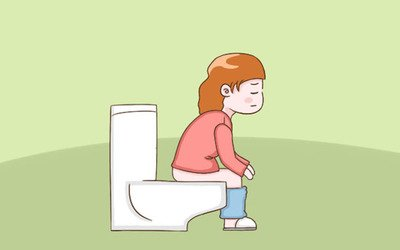Defeat Cystitis Glandularis in Young People: Say Goodbye to Frequent Urination Easily!
Cystitis glandularis (CG) is a proliferative disease in which the epithelial mucosa of the bladder proliferates and the submucosa secretes mucus. The incidence is 0.9%-1.9%, higher in women than men, and can occur in all age groups. It is a benign lesion, but there is a possibility of malignancy.

Cystitis glandularis is a special kind of cystitis, which is mainly manifested in its difficult-to-cure, recurring symptoms of frequent urination, urinary urgency, painful urination, and hematuria, which seriously affects patients. When this disease appears in young people, we call it youth glandular cystitis.
Why do young people get cystitis glandularis? This has a lot to do with the living habits of contemporary young people.
Firstly, young people who sit at a desk for a long time or are addicted to cell phones and computers are prone to pelvic congestion, which leads to bacterial growth and triggers glandular cystitis.
Secondly, ignore personal hygiene. If young men don't bathe regularly, change their underwear, or wipe thoroughly, bacteria will easily take advantage of the situation.
Finally, snoring can cause the vaginal opening to slowly become loose, thus affecting the function of urine drainage, which is also a common cause of this disease.
However, these factors are more just predisposing factors. The causes of cystitis glandularis are related to lower urinary tract obstruction, chronic infections of the urinary system, urinary stones, foreign body irritation, indwelling catheters, and chronic irritation, as well as obstetric and gynecological factors such as decreased estrogen levels, psychiatric factors, metaphylaxis, vitamin deficiencies, multiple births, recurrent miscarriages, and pelvic floor muscle relaxation. Chronic infection of the urinary tract is considered the main pathologic factor in developing this disease.
What is the treatment for cystitis glandularis in young people?
1. Conservative treatment
Chronic irritants that cause glandular cystitis include infection, urinary tract obstruction, physical irritation, and chemical carcinogens. When patients have clear chronic irritants, treatment should first remove these chronic irritants. For patients with severe symptoms of bladder irritation, drugs such as alpha-blockers and M-receptor antagonists can be used to relieve bladder irritation.
Patients can also choose Diuretic and Anti-inflammatory Pill for treatment, which has rich experience and remarkable effect on the treatment of chronic inflammation of the urinary system, with the function of anti-inflammatory, sterilization, detoxification, and pain relief, which can eliminate inflammation, improve the immunity of patients, and ultimately cure the disease.
2. Surgery Treatment
Endoluminal Surgery: With the development of endoluminal instruments, endoluminal Surgery has become mainstream. After spreading the bladder mucosa, the resection should exceed the lesion border by 1 cm and reach the deep muscle layer. Intraoperative precautions and complications are the same as those for bladder tumor electrodessication.
Open Surgery: It includes bladder mucosal dissection, partial cystectomy, and total cystectomy, which is less commonly used nowadays due to high surgical trauma and slow recovery.
Laparoscopic Surgery: For patients with upper urinary tract fluid and bladder contracture, laparoscopic partial cystectomy or total cystectomy can be performed according to the situation, but the indications for Surgery should be strictly controlled.
3. Other Treatments
Bladder Perfusion Therapy: The medications used for perfusion in cystitis glandularis are the same as those used for bladder perfusion after Surgery for bladder cancer. Since there is no clear evidence on the role of bladder perfusion in the treatment of cystitis glandularis, and because of the possible side effects associated with bladder perfusion, bladder perfusion chemotherapy is no longer recommended by most experts.
In addition, the probability of the disease being associated with the habits. Bad habits such as holding urine for a long time and not paying attention to genital hygiene are some of the factors that cause the disease.
If young people want to have a healthy body, they should change their bad habits from the start: drink more water to ensure adequate water intake every day and more urinate; eat more fresh vegetables and fruits; Do appropriate exercise to enhance physical fitness and body immunity; pay attention to rest and do not stay up all night; avoid spicy and stimulating food, avoid alcohol and tobacco.
You may also be interested in:
Cystitis Glandularis- TCM can Ease Your Frequent and Urgent Urination
Is Cystitis Glandularis a Precancerous Lesion? How to Prevent Its Canceration?



